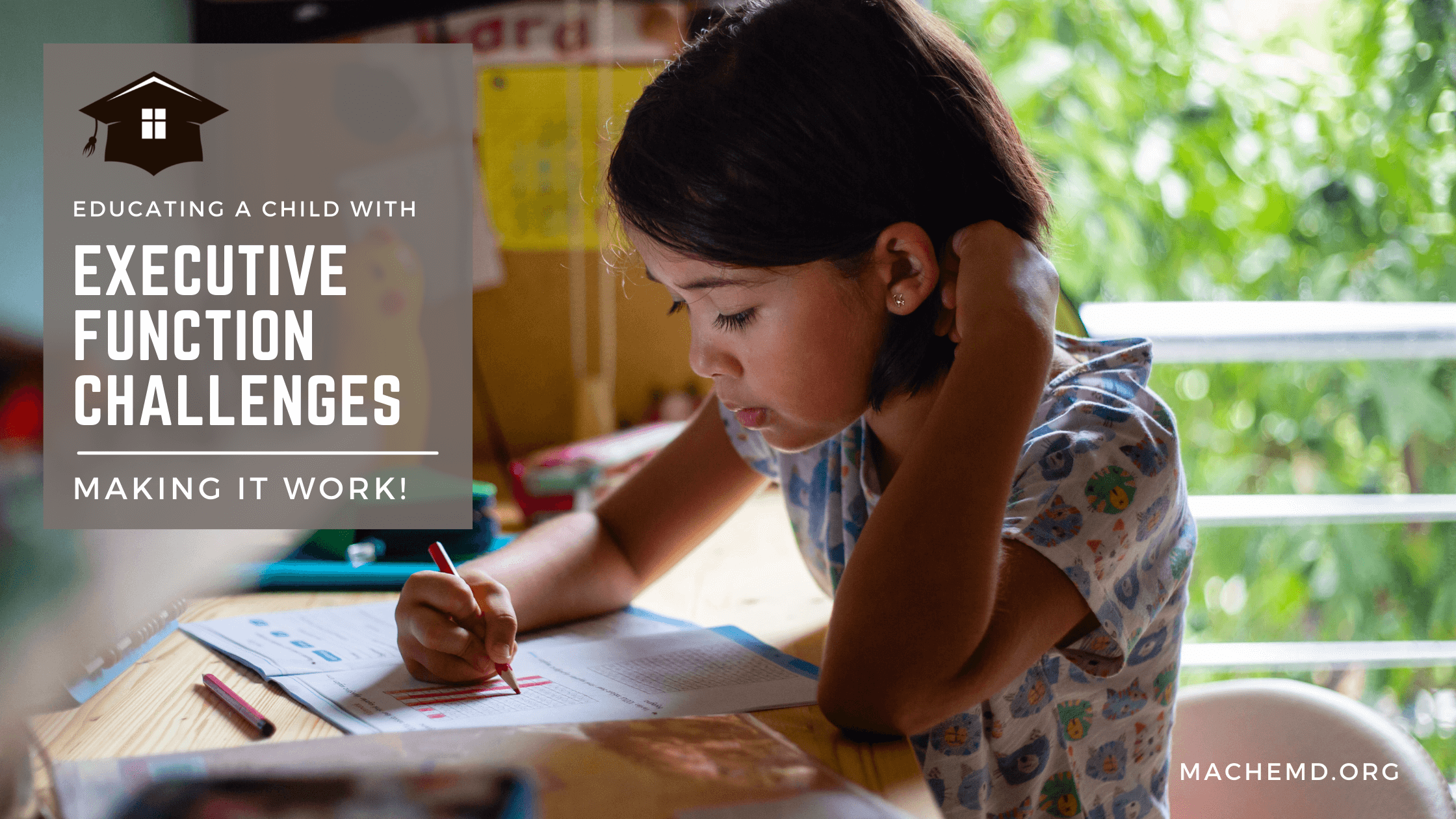Does your child struggle with planning, organizing, and/or sequencing their thoughts? Perhaps, he/she struggles to follow simple multi-step instructions or balance assigned tasks? Well, you are not alone.
What exactly is an Executive Function Disorder?
Have you ever been told that your child has difficulties with executive functioning, but you are not quite what that meant? Let’s start with a simplified description. Executive Functioning is “the ability to maintain appropriate problem-solving skills for the attainment of a future goal” (CDC). Many children with executive functioning challenges have difficulty planning, organizing, sharing focus, and reading social cues and in turn, experience great challenges in social situations.
While this is not an exhaustive list, some of the most observed behaviors you might see in a child who struggles with the executive functioning disorder include:
- Problems with starting, organizing, planning, or completing tasks,
- Poor strategy use,
- Difficulty making connections between behaviors and consequences,
- Short-term memory issues or difficulty with delayed gratification,
- Trouble controlling emotions or impulses,
- Inability to apply knowledge to new situations (i.e., flexibility),
- Lack of inhibition (i.e., self-control),
- Overdependence on concrete thinking, and
- Trouble listening or paying attention.
Given the uniqueness of the challenges each child with executive disorder faces, it is often quite difficult for families to know how best to support their child’s educational needs and how to develop new and effective learning routines. As you can imagine, difficulties in executive functioning affect multiple areas of learning and are quite often misunderstood. At times, these learners are labeled as “lazy” or “not as smart” as his/her counterpart. On the contrary, these learners are bright and often exceed the learning abilities of their peers. However, behaviors such as not completing assigned tasks and the uneven emotional reactions to issues can often time mask their intellectual gifts. All that to say, it is not an easy task to pinpoint the source of the problem with a child who struggles with executive functioning disorder.
So, here is some goods news … with the right support, learners with executive functioning issues can thrive. There are lots of practical ways that you can support your struggling learner, not only in their educational endeavors but also in life!
Here are a few concrete steps you can take to meet this challenge of supporting your child —and yourself:
Keep Consistent & Predictable Routines
In executive function coaching, we often focus on the value of routines, especially during the school day or week. You’ve probably experienced for yourself that your child performs better when routines are predictable. Routines can help students feel balanced and organized and from a student’s perspective, it also gives them a chance to practice being responsible and independent. With a clear plan, you can piece together structured days that meet your family’s needs and give your child a sense of organization and stability amid the chaos.
Encourage Your Child Help with Planning
As important as routines are, it’s also important not to force them on your child unilaterally, especially as they get older. Helping your child develop a sense of ownership and responsibility is key to supporting them in building their executive function skills. It is likely that your child will be more invested in their successes if they are involved in the planning. The degree to which you
All these details will vary according to your child’s age, learning style, and your family’s circumstances overall. And of course, not all of your child’s ideas and preferences will be practical. But even with very young children, it’s worth opening up these conversations and working together to make sure their voices are heard.
Prioritize Mental Health
It is important to remember that your child’s mental and emotional health is just as important as their academic development. As you establish new routines, make sure that you’re paying plenty of attention to managing stress and giving your child outlets for their feelings. Taking some responsibility for these needs is also another way for kids to build executive function skills.
This will look a little different for every child and every family, but a few essential areas to consider include:
- Encouraging Sleep Maintenance: As much as possible, try to maintain regular sleep schedules for everyone in your family. This is not always possible, but it is worth a try!
- Scheduling Physical Exercise: Make sure your child stays moving! This will look different for every family. It may be yoga for some and a quick soccer game for others.
- Balancing Nutrition: Make sure you provide a balance of healthy and enjoyable snacks! Don’t deprive your child but make sure there is a balance.
- Setting boundaries: As any adult who works part-time or full time, it can be challenging to switch mindsets from work mode to home, especially when your workspace overlaps with your living space. Create clear boundaries – it will help not only your child but you too.
- Managing anxiety: Understandably, a lot of kids are anxious about various things. Acknowledge their fears, give them space to talk, and teach them to self-regulate. This may be painting a picture, journaling or simply sharing their feelings with a friend.

The coming weeks and months are bound to be challenging for everyone because change is never easy, but by focusing on the unique opportunities to support our unique learner, you can help your child come out the other side with new skills that will support them long into the future.

